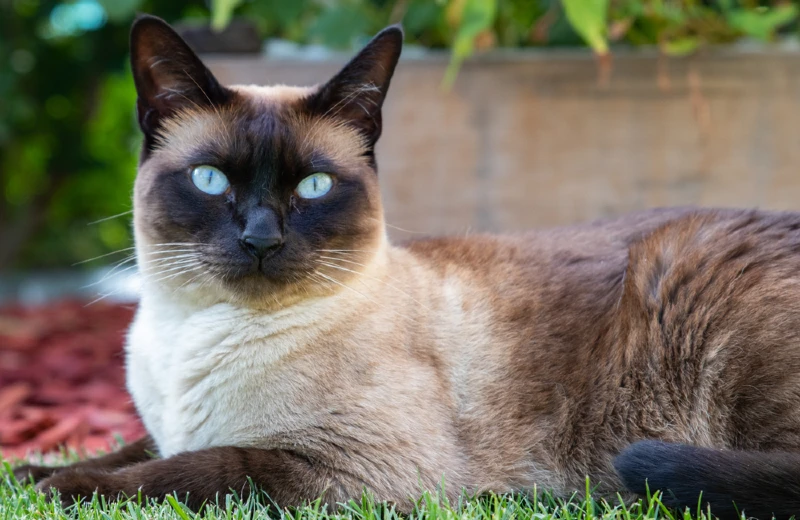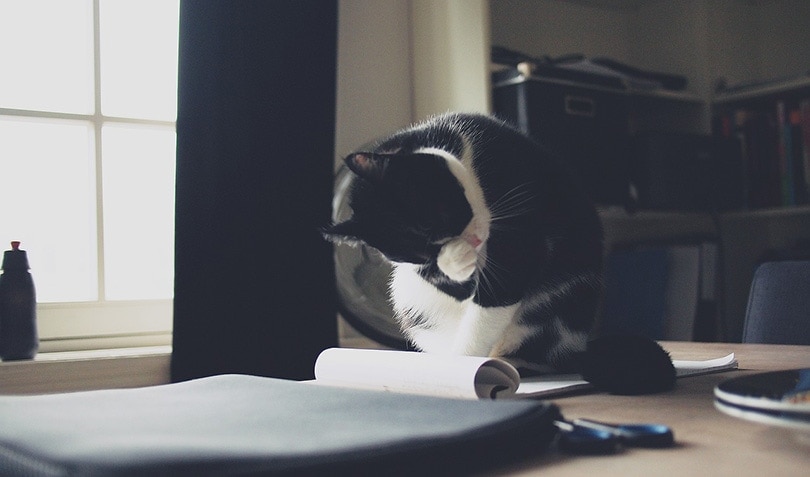Does Rain Kill Fleas? Vet-Approved Safety & Effectiveness Tips
Updated on
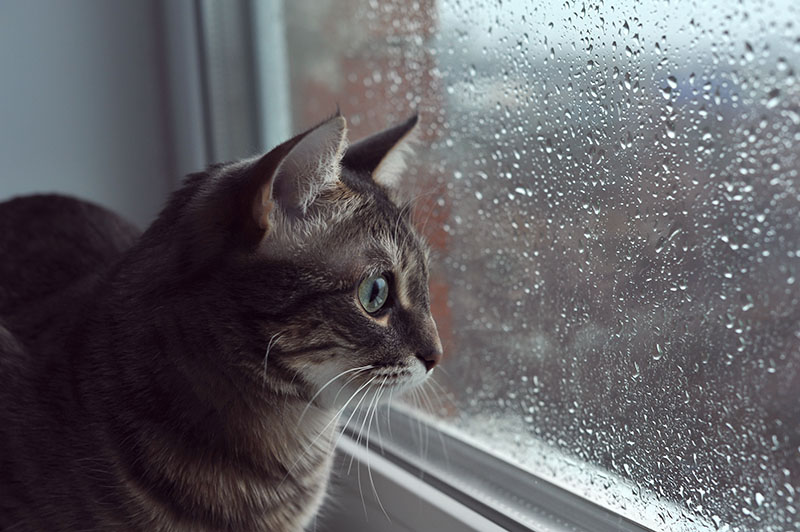
One of the most dreaded aspects of pet ownership is having to deal with fleas. These tiny little parasites are everywhere, easily affect our beloved pets, and can be a real pain to get rid of. When heavy rain comes, it may leave pet owners hopeful that maybe a downpour will be enough to kill any fleas hanging out in the yard. So, can rain kill fleas?
Unfortunately, you can’t rely on rain to kill a flea problem, though it can sometimes kill developing larvae if they become heavily saturated. The truth is rain can actually make for an ideal environment for fleas to thrive because it provides humidity to the environment. Keep reading to learn more about how rain affects these pesky creatures and how you can safely and effectively treat a flea problem.
How Rain Affects Fleas
Fleas are year-round parasites but they can become a worse problem during the spring and summer, and this is because they thrive in warm, humid environments. Rain is a top contributor to humidity, meaning it can create an ideal environment for these parasites to flourish and reproduce.
Fleas are much less likely to survive in hot, dry conditions, so places that get regular rain create much more of an optimal breeding ground and can easily result in infections of your pets, home, and yard.
Heavy rains can have a negative impact on flea larvae, so we’ll take a closer look at how it can impact them at different stages:
Eggs
When outdoors, eggs are often laid on the ground, so they are at risk of being washed away by heavy rain. However, fleas are built for survival and prefer sheltered areas that protect them from weather conditions. They are also likely to lay eggs on pets or indoors, keeping them safe from heavy rain.
Larvae/Pupae
Flea larvae develop in cocoons that naturally protect them from the elements. Heavy rain usually won’t kill larvae, but they can drown if they are submerged for too long.

Adults
Not only can adult fleas jump long distances, allowing them to escape the rain, but apparently, they can also survive up to 24 hours while submerged in water.
 How to Safely and Effectively Treat Fleas
How to Safely and Effectively Treat Fleas
Talk to Your Veterinarian
As a pet parent, you need to discuss with your veterinarian the best methods to prevent and control fleas and other parasites in your particular furry friend. They will be up to date with the latest science and the safest, most effective ways to get the job done.
Your vet will be aware of your pet’s health history and will be able to prescribe a flea and tick medication that is best suited for their needs. They will also be able to advise you on how to rid your home and yard of these awful parasites and treat your pet for any side effects from a flea infestation.
Use a Flea Comb
If you suspect your pet has fleas, comb through them thoroughly with a flea comb to remove the fleas and flea dirt from their skin and coat. A flea comb will easily help you confirm whether your pet has fleas and is effective at removing them, though it’s not a treatment in and of itself.
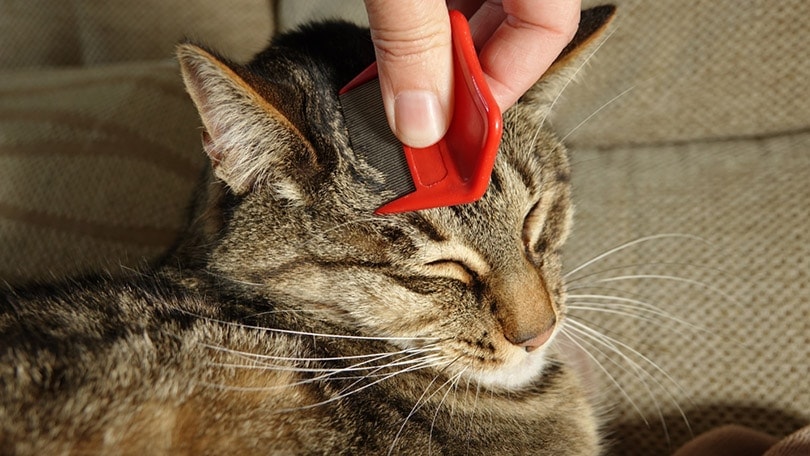
Clean, Clean, and Clean Some More
When it comes to both your home and yard, you need to ensure you keep up with regular cleaning. Vacuum often to remove fleas of all stages from the floors and make sure to dispose of the contents immediately, never allowing it to remain in the house.
For your yard, you should clean up grass clippings, clear out any brush, woodpiles, and leaf litter from your lawn. All of these will attract mice and rats, which are known carriers of fleas and ticks. Inviting them into your yard means inviting in their parasites.
Stay Up to Date on Flea and Tick Control Medication
Make sure you stay up to date on flea and tick medication as prescribed by your veterinarian. While there are over the counter options that can also work, these are often less effective because fleas tend to become more resistant to these formulas. There are many different types of flea and tick control and your vet can help you decide which works best for you and your pets.
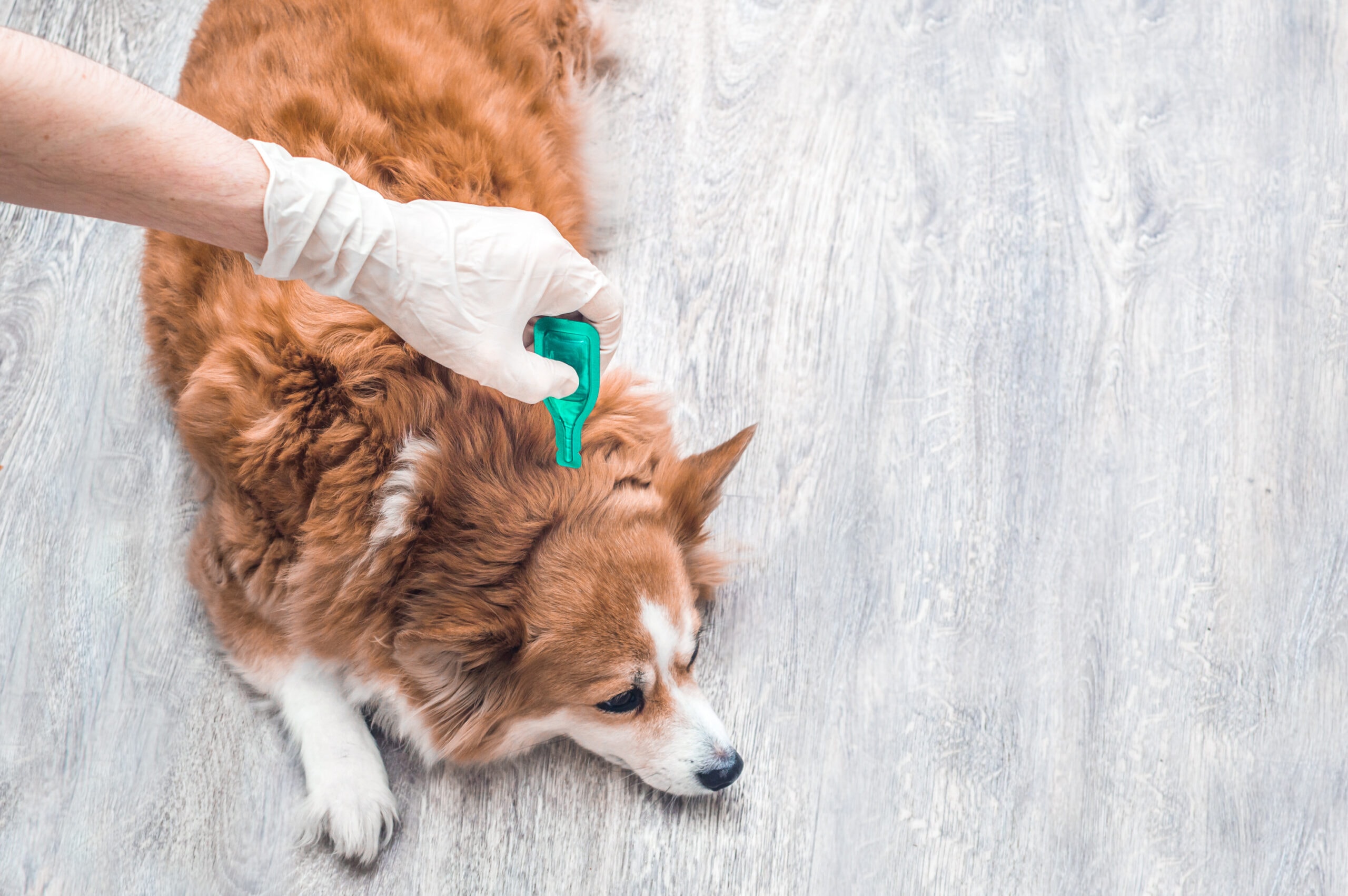
Groom and Bathe Your Pet
Regular grooming and bathing will not only help you identify a potential infestation but can also be an extra help to treat one. A medicated shampoo might be helpful to calm your pet’s irritated skin due to flea bites. You can also speak to your vet about the possibility of using a top-quality flea and tick shampoo. Make sure you use a shampoo that is formulated for your pet’s species since some dog shampoos are toxic for cats.
Note: Please be aware that some dog flea products on the market are based on compounds called Pyrethrins, and these are highly toxic to cats. Please take special precautions and use only cat-specific anti-flea products on your cat and follow the manufacturer’s instructions carefully. If you have multiple cats, it is recommended to keep your cats separate to avoid ingestion of toxic chemicals via allogrooming. Always consult with your veterinarian before applying any treatment to your cat. Do not allow your pets to swim in lakes or the oceans after the pyrethrin treatment application. Never use a pyrethrin-based product in the same room you keep a fish tank. Use gloves and keep away from children. Kindly dispose of the bottles considering safety precautions
Treat Your Home
Fleas can be difficult to remedy once they’ve infested your home since they have complex life cycles that must be interrupted. You can opt to treat your home yourself with either natural or chemical treatments, or you can contact a professional to take care of the problem for you. Remember to always follow safety guidelines when using any type of flea treatment.
Treat Your Yard
Since your yard can also be a breeding ground for these pests, it’s a good idea to have your yard treated in addition to your home and pets, that way you cover all bases. You can choose between chemical spray or plenty of natural yard treatments, whichever is your preference. You can also opt for professional help.
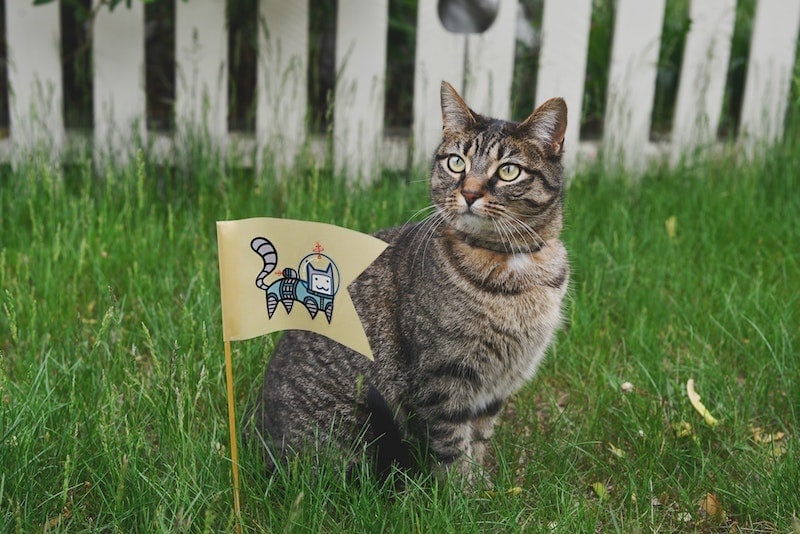
Follow Up as Needed
When it comes to flea treatment, you may have to do follow up treatments to interrupt the lifecycle and take care of the problem once and for all. A professional will guide you on the best ways to follow up with treatment, otherwise, if you are doing it yourself, make sure you understand the flea lifecycle and the best time to re-treat.
Conclusion
Rather than killing fleas, rain is more likely to provide the best environment for them to reproduce and thrive. While larvae are subject to drowning if submerged for long periods, fleas are built for survival and rain isn’t going to pose much of a threat. Warmer temperatures and high humidity are ideal for fleas, allowing them to multiply and affect domesticated pets and various wildlife. Areas that receive regular rain will need to be prepared to prevent and treat fleas both safely and effectively.
Featured Image Credit: Natali9701, Shutterstock


 How to Safely and Effectively Treat Fleas
How to Safely and Effectively Treat Fleas
